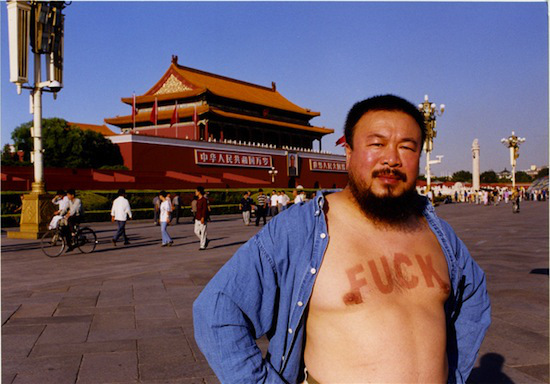Update July 31 2015: Having personally reviewed Ai’s case (with Sky News reporting that she had not previously been consulted), known patron of the arts and staunchly pro-immigration Home Secretary Theresa May has granted the artist his previously-denied six-month work visa and apologised "for the inconvenience caused".
The party — so much as you can call being granted the basic freedom to travel after a period of four years wherein your passport has been confiscated by the state, your friends and relatives have been disappeared and you have variously been hospitalised, accused of tax-based crimes and placed under house arrest for speaking out against the absolute rule of authority — it seems, is over before it’s even really started. Having only last week been returned his passport, and with it his freedom to travel, the artist has already come up against a brick wall in exercising that right. From one draconian state to another: Ai Weiwei has been denied a six-month work visa by the British government, who have instead only granted a three-week stay.
Having previously posed with his official documentation in hand, the artist once again took to Instagram (the ultimate platform of social justice) this time to vent exasperation at a perceived "stand to take the position of those who caused sufferings for human rights defenders" — and post a photo of a toilet.
Not only does the result of the ruling mean that Ai is once again likely unable to attend an exhibition of his own work, but — actually — the judgement itself, based on the artist’s failure to declare a criminal conviction and going so far as to call it a "matter of public record", is kind of perplexing when you think about. Not just because even any hypothetical criminal record is likely tied up in a hoopla of the kind of human rights abuses this country claims publicly to stand against, but because Ai doesn’t seem to have a criminal record.
Speaking to the Guardian, lawyer and friend of the dissident artist Liu Xiaoyuan explains that "Under Chinese law Ai’s case ended in the police investigation stage and has not reached the court. The case does not have a court sentence and hence by Chinese standard, Ai doesn’t have a criminal conviction."
It’s a politically strange, hypocritical and, ultimately, factually incorrect stance to take; as Liu rightly asks: “Aung San Suu Kyi and many other human rights activists have been kept under house arrest for years. Do those count as criminal convictions?”


